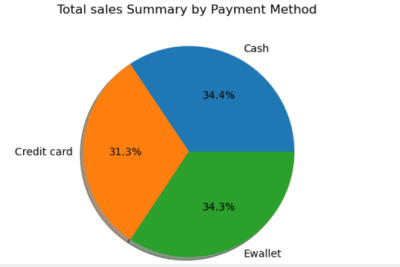The data science industry has emerged as one of the most dynamic and lucrative fields in the modern job market. Organizations across the globe are leveraging data to make strategic decisions, solve complex problems, and gain competitive advantages. For newcomers looking to build a career in this exciting domain, understanding the various roles within the industry is crucial. Let’s delve into some key roles in the data science ecosystem and their responsibilities.

Data Analyst
Data Analysts are responsible for interpreting data and turning it into actionable insights. They collect, process, and analyze datasets to identify trends and patterns, enabling businesses to make informed decisions. Common tools used include Excel, SQL, and visualization software like Tableau or Power BI. A solid foundation in statistics and data visualization is essential for this role.
Data Engineer
Data Engineers focus on building and maintaining the infrastructure that allows data to be collected, stored, and processed efficiently. They design data pipelines, optimize databases, and ensure seamless data flow across systems. This role requires strong programming skills in languages like Python, Java, or Scala, and expertise in databases such as SQL and NoSQL.
Data Scientist
Data Scientists are at the heart of the data science industry, combining statistical expertise, programming skills, and domain knowledge to extract insights and build predictive models. They use techniques like machine learning, deep learning, and natural language processing to solve complex business problems. Proficiency in Python, R, and machine learning frameworks like TensorFlow or PyTorch is essential for this role.
Data Architect
Data Architects design the blueprint for data management systems. They create strategies for data integration, storage, and security, ensuring that the organization’s data ecosystem is robust and scalable. This role requires knowledge of cloud platforms like AWS or Azure and database technologies.
Business Analyst
Business Analysts bridge the gap between business needs and technical solutions. They gather requirements, communicate with stakeholders, and ensure that data-driven strategies align with organizational goals. While they may not work extensively with coding, they need a solid understanding of data visualization tools and business intelligence concepts.
Statistician
Statisticians apply mathematical techniques to analyze data and solve real-world problems. They focus on developing models and conducting hypothesis testing to validate assumptions. This role demands a strong foundation in probability, statistics, and mathematical modeling.
Machine Learning Engineer
Machine Learning Engineers specialize in designing and deploying machine learning models into production. They work closely with Data Scientists to operationalize predictive models and ensure their scalability and reliability. Expertise in programming, cloud computing, and ML frameworks is a must for this role.
Data Visualization Expert
Data Visualization Experts focus on transforming raw data into visually appealing and easy-to-understand formats. They create dashboards and reports that enable stakeholders to grasp complex information quickly. Mastery of tools like Tableau, Power BI, and libraries like D3.js or Matplotlib is vital.
Choosing the Right Path
For aspiring professionals, the first step is to evaluate your interests and strengths. Are you inclined towards coding and infrastructure? Data Engineering might be your path. Do you enjoy mathematical problem-solving? Consider roles like Statistician or Data Scientist. If you have strong communication skills and a knack for understanding business processes, Business Analyst could be a great fit.
Building Skills for a Data Science Career
Here are some steps to prepare for a career in data science:
- Learn Programming: Python and SQL are the most commonly used languages in data science.
- Master Data Tools: Familiarize yourself with tools like Excel, Tableau, Power BI, and cloud platforms.
- Understand Statistics: A solid grasp of statistical concepts is essential for most roles.
- Work on Real-World Projects: Build a portfolio by solving real-world problems or participating in hackathons.
- Network: Join data science communities and connect with professionals to learn from their experiences.
Conclusion
The data science industry offers a wide array of career opportunities, each with unique challenges and rewards. By understanding these roles and aligning them with your skills and interests, you can carve out a successful and fulfilling career in this ever-evolving field. Start small, stay curious, and continue learning — the world of data awaits!



